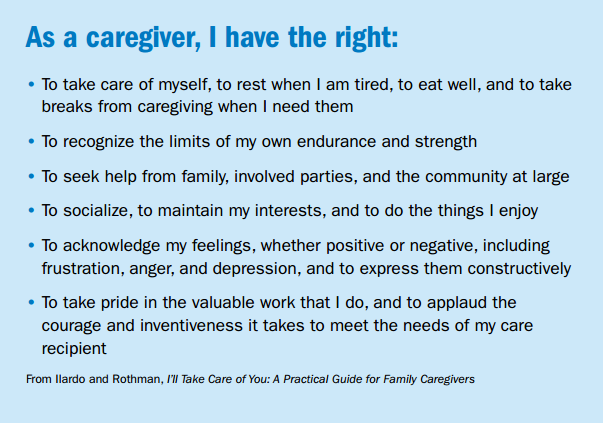Doctors, nurses and social workers at the transplant center will help caregivers learn about their role. We also support caregivers with programs and resources, including one-on-one support.
Taking care of your loved one
Here’s a list of the ways caregivers can support their loved one before transplant:
Medical care:
• Be with your loved one in the hospital or clinic during doctor’s visits to listen and ask questions
• Ask the doctors to explain treatment choices, test results and medicines
• Keep track of all treatments in a notebook
• Talk with your loved one to understand their treatment goals
Manage the costs:
• Find out what insurance will pay and what you will need to pay
• Ask the social worker or financial coordinator about other financial help
• Help plan how to pay for transplant
• Make sure household bills are paid on time
• Help keep health insurance and other benefits active
• Ask about taking an extended leave from work (Family Medical Leave Act) for both you and your loved one
Emotional health and well-being:
• Be there to listen, talk or simply be present
• Show support for your loved one’s feelings
• Spend time together doing things you both enjoy
• Help communicate with your support system
“Looking back, I wish I would’ve let others help me more. I didn’t realize how much I was holding back until I finally let them in. They wanted to help us so deeply but didn’t know how.”
- Kate, caregiver
Taking care of you
It can be easy for caregivers to forget about their own needs. It’s very important for caregivers to take time to care for themselves. Here are a few tips for caregivers to rest and recharge:
• Take 5-10 minutes every morning and/or evening to be quiet, breathe, meditate, or pray. Sit or lie down. Stretch. Gaze out the window. Listen to the sounds of nature.
• When you’re driving and at a stoplight, take your hands off the wheel for a moment and put them in your lap. Take 1 deep breath in and out. Then put your hands back on the wheel.
• Change your environment. Get up and walk down the hall or go outside.
• Escape into a chapter of a good book or magazine, even if just for 15 minutes.
• Turn up your favorite song and sing loudly in the car.
“Remember, there is light at the end of this long and meandering tunnel you are about to enter.”
- Kay, transplant caregiver
Talk to other caregivers
You may find it helpful to talk with another caregiver who has been through transplant. Our Be The Match Peer Connect program can connect you with a trained volunteer who’s been there. No matter where you’re at in transplant journey, caregivers, like you, are available to talk by phone or email. They’re available to listen and share their experience and tips. Request a connection.

From Caregiver's Companion booklet information
“It was hard for me to deal with uncertainty and helplessness. I tried to be there for my wife, to do whatever I could to help her through the difficult times, but at the end of the day I had to recognize that I could only do so much. I had to accept that there were many things I just could not control.”
- Brian, caregiver
